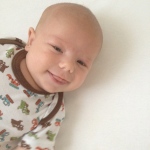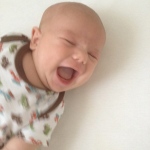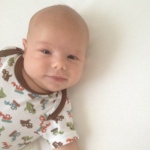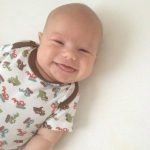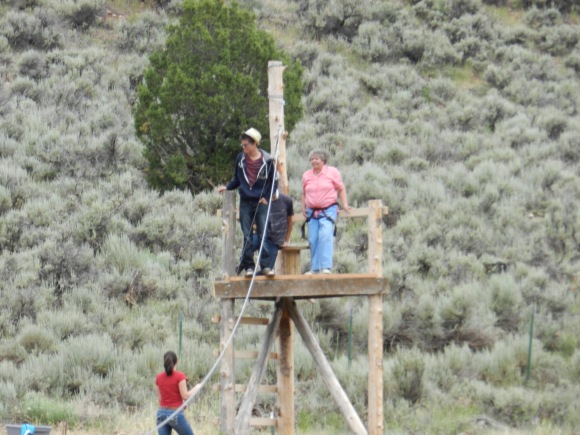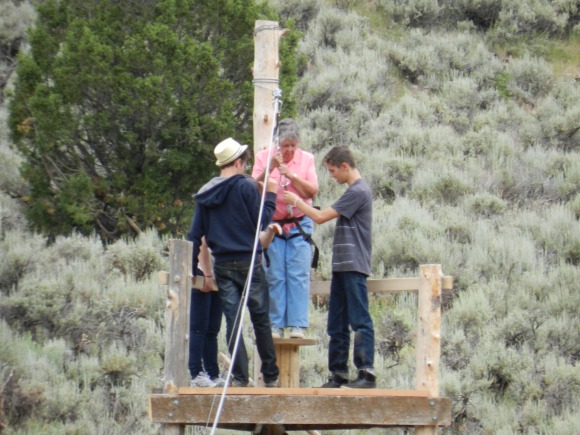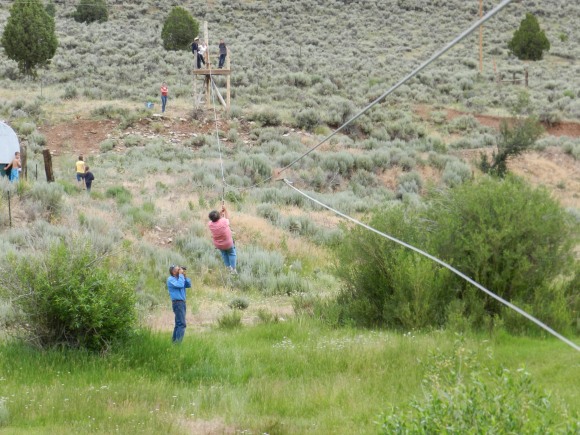I feel so blessed on this particular pioneer day.
I have an ancestor.
Her name is Elizabeth Robinson Telford.
And I look up to her more than anyone in the world.
This is her.
What an amazing woman.
Here is her story:
Born in England. 1836.
Ninth of Ten children.
Member of the Church of England.
Mother: Mid-wife
Father: Honest miner
The Robinson's invited to their home to Latter - Day Saint missionaries.
Baptized 1854.
1856.
Left her family and friends and decided to come to America with her little brother Solomon.
Landed in Boston, Massachusetts
Boston - Chicago - Iowa City
Joined the Martin Handcart Company
The Martin Handcart Company:
biggest handcart company, fewest wagons, most infirm, least provisions, most women and children
Omaha
Headed to Salt Lake City along the 'Old Mormon Trail;
The travelers were so cold, so hungry on their travels.
Not only did they leave late, but winter storms came earlier; more severe
They had to wade through freezing cold streams and rivers.
Elizabeth crossed at the Platte River.
11 died that night.
All others - their clothes frozen to their bodies.
Forced to leave most of their belongings, from the few they had all brought with them.
They grew weaker.
Discarded even more.
Nearly naked, in the coldest of weather.
For food, one pound of flour/day
to two spoonsfuls of flour/day
one in the early morning
two in the late evening
no salt or pepper
no meat or vegetables
in all their travels: one buffalo
"The suffering of this company was beyond words to express, and those who didn't die were so weak and ill that they were near death." (see source below)
Of other individuals, this was said:
Luke Carter and William Edwards, pulled a handcart together . . . Mr. Edwards was not a strong man and one day he complained of fatigue, and begged his companion to let him drop down by the side of the road and die. Mr. Carter, thinking a rest would revive him, complied with the request. Mr. Edwards ... laid down on the prairie and in ten minutes he passed away.
Another man was going to commit suicide. His wife had died on shipboard when she gave birth to a baby. The baby starved to death for the lack of proper food. He was left with the care of four or five small children, the oldest girl had both of her feet frozen so badly that they had to be amputated. This was more than her father could endure, so one day while he was lying under his handcart at the noon camp he prepared to end it all. He had taken his razor out and the sun flashed the light in a girls eyes, she screamed, attracting the attention of the entire camp, thus averting another tragedy. This unfortunate mans life was saved, as he wasn't allowed to carry out his desperate plan, but he was so discouraged over the pitiable condition of his family that he wouldn't continue on his journey but remained in Laramie.
Another member of this courageous company, known as Father Stone, who traveled with a little grandchild about two years of age, lagged behind the company one day and was taken up by the Hunt Wagon Company, traveling in the rear. He was invited to stay with them over night but being anxious to regain his own company, he and his little granddaughter continued on into the night and on the morrow their mangled remains were discovered on the plains surrounded by packs of wolves.
President Brigham Young learned of the suffering of these handcart companies and sent relief trains.
When the relief trains found the Martin Handcart Company, they were in a desperate condition.
Fifty - six dead since leaving the Platte River; nine before
Most of their bedding: abandoned.
Old men pulling and tugging carts loaded with sick wives and children.
Young children struggling through the snow and mud.
Now, onto the most memorable and heart-wrenching story of this handcart company.
Three men:
David P. Kimball, George W. Grant, C. Allen Huntington
These three self-less men waded back and forth for hours helping the handcarts, helping the women, helping the children cross the Sweet Water River.
One man offered to carry Elizabeth.
She refused.
But carry my brother.
As he was so ill she knew he would die in that river.
With all the strength she had, she began crossing that river.
Another man insisted carrying her, as she was not strong enough.
The death of Solomon, her younger brother occurred soonafter, on November 5th.
Now Elizabeth,
had to continue.
Without her family;
Without her friends:
alone.
She grew even weaker continuing on her trek.
Discarding more clothes, more bedding, more provisions.
But, she kept her books:
her Church works, a Barclay's dictionary, and her brother;s books.
More relief trains.
There was not enough room for all of the weary riders to ride.
They tried to give them all a turn.
However, Elizabeth had walked this whole time without riding a single step.
Over a thousand miles.
The only thing, she said, that kept her alive
was the thought of her parents in England,
and their grief when they learned that
her and her brother had died
of hunger and cold
Otherwise, she would have laid down in the snow and died.
Her feet were frozen so badly.
She could not keep up.
So, she got up early in the morning to start before everyone had started to avoid being left behind.
They caught up to her.
Began to pass her.
Too proud, too shy to ask for a ride.
Even though she had never had a turn on the wagon.
The wagons all passed.
All but one.
So weak.
She knew she would meet the same fate as the little girl and her grandfather.
It was only the fear of the wolves, as that last wagon passed,
that gave her the courage to speak to the driver.
Anson Call of the relief party.
His team was too weary to carry her up the next hill, but as soon as they reach the top,
they will carry you.
With all the strength left, she made it up that hill.
Looking at her state,
he was very surprised that she had not been given a ride sooner.
He got out of his wagon, carried her to the wagon, and put her inside.
That evening, she had to be carried to the campfire, and have her boots cut from her frozen feet.
Wrapped in gunny sacks.
Those black feet.
Feared to be amputated to the knees.
Each night and each morning, her feet were carefully bathed in warm water.
It was Jesse Perkins, a member of the relief party, who carried her to the campfire every day for the remainder of the journey.
It was impossible for her to walk any more, until she reached Salt Lake.
Her legs were never amputated.
Thanks to Jesse Perkins.
Elizabeth arrived in Salt Lake City
with the other members of the Martin Handcart Company
November 30, 1856
When she saw that cheerful, happy throng of pioneers, so clean and neatly dressed and compared them with her own Country people in their pitiful tattered clothing, hungry, bedraggled and frost bitten, she could no longer restrain her tears, the first she had shed on that long tragic pilgrimage across the plains, where she had faced danger and death and every privation. And where she had left her brother buried in the snow. The only relative she had in this new land and the only member of that company that she had ever known before leaving her native land.
But one hundred and fifty of this valiant band of emigrants never lived to reach their destination, as they died of unprecedented hardships on the plains.
After her arrival,
lived at the home of Anson Call
until she was married
Salt Lake City
March 13 1857 to
John Telford
Lived in Bountiful, Brigham City, Richmond
Of Elizabeth, this was said:
Elizabeth Robinson Telford was a woman of fine character, supreme faith and courage. She was broadminded, scrupulously honest and truthful. She was unselfish and conscientious to a fault, and had a wonderful sense of justice. She was educated and refined, proud and sensitive. She was fastidious in dress and in thought. Quite, modest and unassuming in her manner. She was of a highly spiritual nature and very reverent. Keen of perception and a good reader of character. Elizabeth was a lover of nature in all her moods and seasons. She loved animals, especially fine horses. She loved to read good books and was interested in all the cultural things of life. Her old fashioned flower garden was a joy to all who knew her.
She was a good housekeeper, thrifty and efficient and always neat and clean. She was an excellent seamstress, doing all her own sewing by hand, the finest of stitching and tucking. Her husband's white linen shirts were made according to the fashion of that time with fine tucked fronts. Her tucks were made but two threads wide and the shirts laundered to perfection. She also knitted for her family and made the finest of knitted and crocheted laces.
Elizabeth, true to her heritage was a most devoted wife and mother. She was kind and thoughtful of others and respected their rights. She was a good neighbor and a generous and loyal friend. She despised a liar or a trouble maker, and couldn't tolerate anything vulgar, mean or petty.
Her children were well trained in all the basic principles - obedience, self control, honesty and industry. In sportsmanship, generosity and consideration for others. The best in fiction, literature, history and religion.
This noble pioneer woman, who was admired and respected by all who knew her, died at the age of 74 years, after an illness of two years. She passed away at her home in Richmond, Cache County, Utah on February 22nd., 1910 and was interred in the Richmond City Cemetery.
This post is for her,
Elizabeth Robinson Telford
For her brother, Solomon,
And for all the members of the Martin Handcart Company.
-summarized by Lauren Elizabeth, her great - great - great - grandaughter
I like to think I was named after her.
And have just a snippet of her courage,
her love of nature,
her love of books.
And only hope to become a mother she would be proud of
The story of Elizabeth Robinson Telford
HERE
More information about the LDS church
HERE
To find out about your ancestry
HERE





